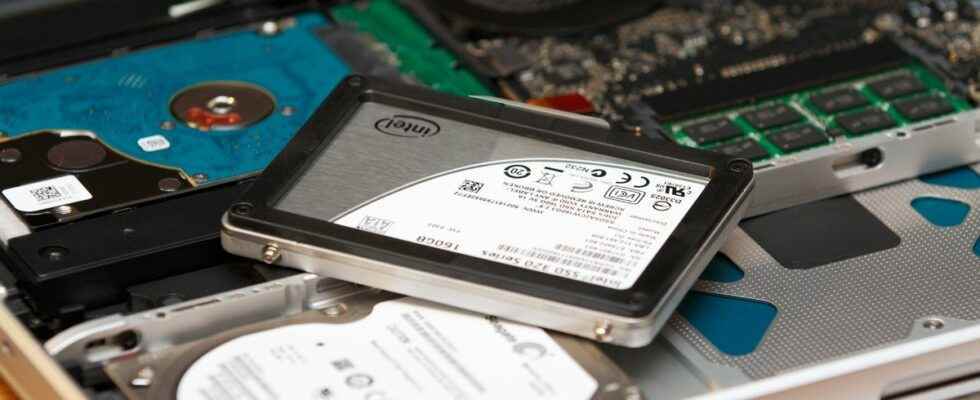Backblaze, a company specializing in data backup, has just published some very interesting figures for anyone who is even slightly interested in the components present in their computer. Over a period of 5 years, the company evaluated the reliability of SSDs (flash memory drives) and good old hard drives (HDDs). Unsurprisingly, the SSDs emerge as the big winners of the duel.
A failure rate around 1% for SSDs
Of the several thousand flash drives and hard drives installed on company machines, these have been found to crash and fail far more often. Both types of memory start with a relatively low failure rate in the first year (below 1%) which stabilizes over the second, third and fourth years (between 1.38 and 1.83% failure for HDDs and 0.79 to 1.05% for SSDs). After 5 years of use, on the other hand, the hard drives begin to race and show a failure rate of 3.55%, while the SSDs are still around 1% (0.92% over the 5th year for be precise).
Fifth-year failure rates skyrocket on HDDs, but without firm data on SSD behavior beyond that time, it’s hard to put this into context. Failure rates of 3, 4, or 5% may not sound like a lot, but across thousands of storage media, it can make a difference. And even if an average user is not likely to install a server farm in his closet, it is good to know that over 5 years of use, SSDs are still much less likely to crash and cause you to lose all your data.
Data to refine
It should be noted that the study conducted by Backblaze concerns almost only 2.5-inch SSDs and not the M.2 format SSDs that are often found today on recent computers. SSDs and hard drives were also only used as a boot disk (and storage for temporary files and system logging), which reduced the volume of data to be written and read, mechanically extending their lifespan.
It’s hardly surprising that drives with mechanical components that jiggle all day long wear out faster than flash drives, but Backblaze’s study puts some numbers to that evidence. The company, however, clarifies that it is certain that “the failure rate of SSDs will eventually increase“, probably by the time the write limit of the chips will be reached. But until we can assess this data, SSDs seem to be the safest option.
